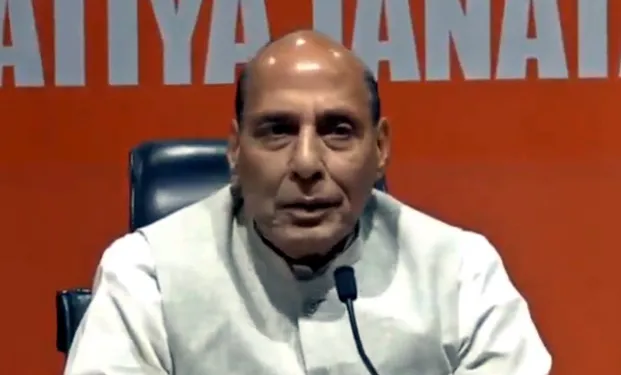Defense Minister Rajnath Singh strongly advocated for reforms in global institutions like the United Nations, stating that the organization, facing a crisis of confidence, has failed to address challenges because it does not align with current realities.
The Defense Minister said, without naming any country, that some nations are openly violating international rules in an attempt to establish their dominance.
Singh made these remarks at a conference organized by the Indian Army here on Tuesday. Addressing the army chiefs of countries contributing peacekeeping troops to the UN, he questioned the UN’s outdated multilateral framework and advocated for reforms.
He said, “We cannot face today’s challenges with old multilateral frameworks. Without comprehensive reforms, the United Nations faces a crisis of confidence. For today’s interconnected world, we need a reformed multilateralism that reflects today’s realities, represents the voices of all stakeholders, addresses contemporary challenges, and focuses on human welfare.”
Referring to some countries openly flouting international rules, he stated that India firmly stands for strengthening the international rules-based order while advocating for reforms in outdated international structures.
He said, “Nowadays, some countries are openly violating international rules, some are trying to weaken them, while others want to establish their dominance over the next century by making their own rules. Amidst all this, India firmly stands for strengthening the international rules-based order while advocating for reforms in outdated international structures.”
The Defense Minister said there is a voice advocating for a greater role for countries contributing military personnel, in accordance with the UN Charter. He said, “Those who serve on the ground and take risks should have a meaningful voice in shaping the policies that guide their missions.”
Singh said that India believes the success of peacekeeping depends not just on numbers, but also on preparedness. Our United Nations Peacekeeping Centre (CUNPK) located here has trained participants from over 90 countries.
This center provides comprehensive scenario-based education, including engagement with armed groups, simulations of humanitarian operations under threat, and civilian protection during crises.
Expressing India’s faith in the international system, he said, “For India, this is not just a topic of discussion; thousands of Indians work for peace and development under the UN flag. This is a prime example demonstrating the principle of linking India’s promises with performance and the commitment to upholding the international order.”
Singh said that for India, peacekeeping has never been an act of choice, but a matter of faith. He said, “Since the beginning of our independence, India has stood firmly with the United Nations in its mission to maintain international peace and security.”
Singh said that India is the land of Mahatma Gandhi, where peace is deeply embedded in our philosophy of non-violence and truth. For Mahatma Gandhi, peace was not merely the absence of war, but a positive state of justice, harmony, and moral strength.






